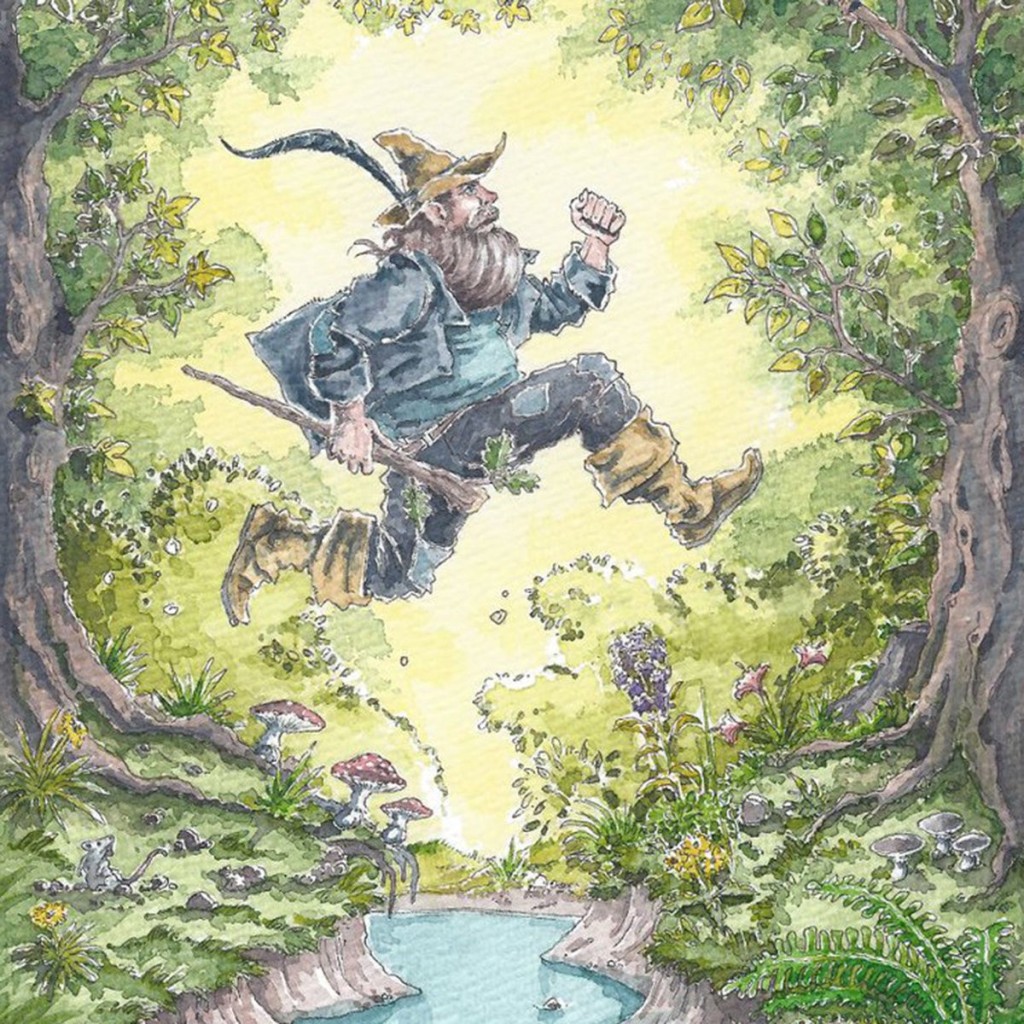The Two Towers by J.R.R Tolkien (Harper Collins 1991,2007) pp. 538-544
Legolas and Gimli find Aragorn kneeling beside the body of Boromir and, at first, they fear that he is mortally wounded too. But soon they are reassured and learn of all that has taken place, of the slaying of Boromir by many orcs as he sought to defend the hobbits.
Now there are questions to answer. Are the hobbits still alive or have they been taken by the orcs? And if they have been taken which way have they gone? They know that Boromir had gone to defend Merry and Pippin but were Frodo and Sam among them? What should they do now? Should they follow the orcs to aid Merry and Pippin or should they find Frodo’s tracks and follow him for the sake of the quest? It is an evil choice that lies before them.
“First we must tend the fallen,” Legolas says. “We cannot leave him lying like carrion among these foul orcs.”

They do not have time to bury Boromir or raise a cairn of stones above him and so they determine to lay him to rest in one of the elven boats. We are reminded here of the ship burials of the Norse or Germanic peoples of Europe. The most famous of these burials here in England is the Sutton Hoo burial from the early 7th century of an Anglo-Saxon king laid to rest in a a ship that was nearly 90 feet long and when discovered in a famous excavation in 1939 was found to contain the most spectacular treasures from as far afield as Byzantium and Sri Lanka.

Aragorn, Legolas and Gimli lay what treasures they can around the fallen hero, son of Denethor, Lord of Gondor. “The grey hood and elven-cloak they folded and placed beneath his head. They combed his long dark hair and arrayed it about his shoulders. The golden belt of Lórien gleamed about his waist. His helm they set beside him, and across his lap they laid the cloven horn and the hilt and shards of his sword; beneath his feet they put the swords of his enemies.”
And so the Anduin, the mighty river of Gondor, takes Boromir over the Rauros falls and down through Osgiliath “out into the Great Sea at night under the stars”.
It is a deeply poignant moment within the story. A brief pause amidst all the frantic action that has taken place that day and all that lies ahead of the three companions. As Tolkien was writing this scene he must have thought of the many fallen soldiers at the Battle of the Somme in which he fought and, most of all, of Robert Gilson and Geoffrey Bache Smith of the Tea Club, Barrovian Society, the T.C.B.S of King Edward’s School in Birmingham, both of whom fell in 1916.
For so many of the dead in that war there could be no pause amidst the fighting and the carnage amidst the trenches of the western front. Many bodies could not even be identified and it was not until after the war ended that the people of Great Britain began the long and patient task of creating memorials to their war dead. From the Tomb of the Unknown Warrior in Westminster Abbey, over which Queen Elizabeth’s coffin was carried at her funeral, to the memorial at the Menin Gate in Ypres in Belgium where those whose bodies were never identified are remembered, to the war cemeteries in Belgium and in France where thousands upon thousands lie, among whom are two of my mother’s uncles, and then the memorials raised in communities up and down the land for those who they had lost, the people of Britain did all that they could to honour their fallen. And we still do on each Sunday nearest to the 11th of November every year at those same memorials in all but a small number of villages across the land where everyone came home from the war. No such villages exist in my county of Worcestershire.
There is much debate among Tolkien scholars about the extent to which The Lord of the Rings is as much a memorial to the fallen of the Great War as it is the creation of a myth that reaches back into a distant past. The recent biopic about Tolkien’s early life certainly suggests this and I, for one, am persuaded. Aragorn, Legolas and Gimli do all that they can to give meaning to the fall of Boromir and Tolkien makes heroes of the thousands who fell on the western front by creating a myth big enough to contain their stories.







